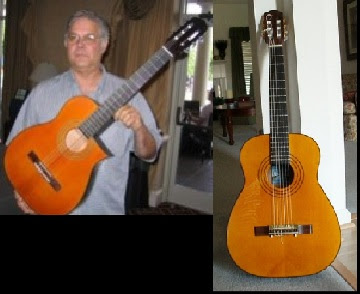Another one done gone, son.
Jerry Reed, who put the funk into country, died Monday in Nashville. The first time I heard him was on a family road trip in an Oldsmobile station wagon the early-seventies. 'When You're Hot, You're Hot' was in heavy rotation on the Delco radio and resulted in instantaneous family sing-a-longs, much to my Mother's dismay.
Flags in Fluville are flying at half mast.
Download:
'If The Good Lord's Willing' mp3
by Jerry Reed, 1955.
available on Here I Am
'In My Own Backyard' mp3
by Jerry Reed, 1957.
available on Here I Am
'You Make It, They Take It' mp3
by Jerry Reed, 1958.
available on Here I Am
'Hully Gully Guitar' mp3
by Jerry Reed and The Hully Girlies, 1962.
out of print
'Guitar Man' mp3
by Jerry Reed, 1967.
available on The Essential Jerry Reed
'Amos Moses' mp3
by Jerry Reed, 1970.
available on The Essential Jerry Reed
'When You're Hot, You're Hot' mp3
by Jerry Reed, 1971
available on The Essential Jerry Reed
'The Uptown Poker Club' mp3
by Jerry Reed, 1973.
available on The Essential Jerry Reed
'The Crude Oil Blues' mp3
by Jerry Reed, 1974.
available on The Essential Jerry Reed
For decades, the Opry famously refused to allow performers to use drums, and many artists over the years have been credited with being the first to bring drums to the Opry.
The third result is Jerry Reed age 30s in Austin, TX. They have also lived in College Station, TX and Bryan, TX. Jerry is related to Cynthia Leanne Reed and Jerry M Reed as well as 3 additional people. Select this result to view Jerry Reed's phone number, address, and more.
The no-drums rule adversely affected country artists who added rock and pop elements to their music in the late 1950s, which many artists did to remain commercially viable as traditional country waned in popularity. When they performed these crossover country songs on the Opry, they were forced to sound more traditional than they really were.
- VENUS – City Administrator Jerry Reed is a busy man. A man with this many skeletons in his closet must need a lot of body bags by now. Documents obtained through open records requests show that not only did he falsify his application to the City of Venus, but also that he used a different Social Security Number in several applications to the.
- Jerry Reed Hubbard was born in Atlanta, GA, on March 20, 1937; after picking up the guitar as a child, he was signed by publisher and producer Bill Lowery to cut his first record, 'If the Good Lord's Willing and the Creeks Don't Rise,' at the age of 18.
The rule also adversely affected rock and rockabilly performers who appeared on the Opry. When Carl Perkins' rock 'n' roll classic 'Blue Suede Shoes' became a hit on the pop, R&B, and country charts in 1955, he was invited to perform it on the Opry but wasn't allowed to use drums.
Today, Music Weird will look at some of the artists who claim to be—or are claimed to be—the first to use drums at the Opry.
Bob Wills (1944)

Richard Carlin's book Country Music: A Biographical Dictionary, says that Wills' drummer used only a snare drum and was forced to stand behind a curtain. But Charles Townsend's book San Antonio Rose: The Life and Music of Bob Wills says in a footnote:
The story has been told that Wills agreed to hide his drums behind the curtain before the Opry officials would allow him to use them. According to Bob and Betty Wills and every musician I have interviewed who was present that night, the story is not true: the drums and horns were 'out in the open.'
Pee Wee King/Harold 'Sticks' McDonald (194?)
Jerry Reed Blogspot Biography
Grand Ole Opry historian Byron Fay wrote about Pee Wee King's experience with using drums on the Opry and about this business of hiding drums behind a curtain:
They used the drums for a couple of weeks but were not allowed to announce on the radio that they were using them. After those couple of weeks, George D. Hay told Pee Wee to take the drums home and to leave them there. In a final comment regarding drums, Bud Wendell was quoted in 1985 as saying, 'That story about hiding drums behind a curtain is just one of those tales around here. As long as we remained at the Ryman, though, we never used anything other than just a standing snare drum. But that had as much to do with space restrictions as with the purity of country music. You just couldn't fit a whole set of drums on the stage at the Ryman; it just wasn't that big.'

The Everly Brothers (1957)
 The Everly Brothers' booking agency claims that the Everly Brothers, in 1957, were the first to use drums on the Opry and that the Everlys are credited with introducing drums to Nashville. That's a lofty claim. The Everlys appeared on the Opry in 1957 to perform their hit 'Bye Bye Love,' which topped the country chart and was covered by country star Webb Pierce.
The Everly Brothers' booking agency claims that the Everly Brothers, in 1957, were the first to use drums on the Opry and that the Everlys are credited with introducing drums to Nashville. That's a lofty claim. The Everlys appeared on the Opry in 1957 to perform their hit 'Bye Bye Love,' which topped the country chart and was covered by country star Webb Pierce.Carl Smith/Buddy Harman (1959)
| Carl Smith, far left; Buddy Harman, center |

Jerry Reed Blogspot Youtube
Jerry Reed Blogspot Facebook
Johnny Horton (1959)
I've read that Johnny Horton was granted an exception to the Opry's no-drum rule when he appeared to perform 'The Battle Of New Orleans,' which was one of the biggest hits of 1959 and prominently features a snare drum. I can't remember where I read it, though. Maybe in the book that came with Horton's Bear Family box set 1956-1960?Johnny Cash/W.S. 'Fluke' Holland (195?)
| Johnny Cash and W.S. 'Fluke' Holland |
Jerry Reed/Willie Ackerman (1967)
| Willie Ackerman |